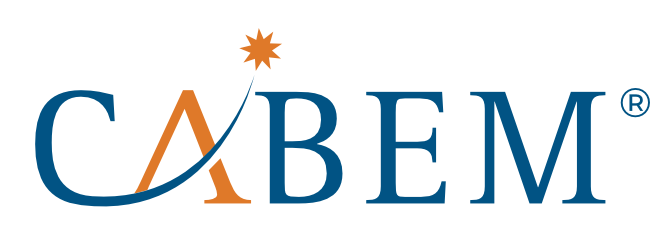Human-centered Capabilities Are Essential in Every Industry
In today’s job market, soft skills that employers look for have become just as—if not more—important than hard skills. According to LinkedIn’s Global Talent Trends, 92% of employers say soft skills are equally or more valuable than technical abilities.
Whether you’re entering the workforce, changing careers, or pursuing leadership, understanding and showcasing your soft skills can be a powerful differentiator. In this guide, we explore the soft skills that employers look for in 2025, how to develop them, and ways to communicate them effectively in your job search.
Why Soft Skills Matter More Than Ever
Soft skills, unlike technical skills, reflect your ability to communicate, collaborate, and adapt—qualities that machines can’t replicate. These human-centered capabilities are essential in every industry, especially as roles become more hybrid, cross-functional, and digital.
CABEM’s competency management platform emphasizes that skills are more than checkboxes. Competency is a blend of knowledge, skills, abilities, behaviors, and certifications—making soft skills central to building a resilient and adaptable workforce.
Most In-Demand Soft Skills Employers Are Looking For
Employers today seek well-rounded professionals who can navigate uncertainty, lead initiatives, and foster collaboration. Here’s a breakdown of the top soft skills that employers look for and why they’re essential:
1. Communication Skills
Clear, effective communication remains the most requested soft skill across industries. Employers value professionals who can convey ideas, actively listen, and tailor their messages to different audiences.
- Verbal: Present ideas clearly during meetings or pitches.
- Written: Craft concise, professional emails or documentation.
- Non-verbal: Body language, eye contact, and active listening.
- Digital: Proficiency in remote communication tools like Zoom, Slack, or Teams.
CABEM emphasizes communication as a key leadership competency—essential for managing teams, resolving conflicts, and maintaining organizational alignment.
2. Problem Solving & Critical Thinking
Problem-solving is a cornerstone of innovation and agility. Employers prioritize candidates who can analyze challenges, propose solutions, and adapt on the fly.
- Analytical Thinking: Break down complex issues.
- Creative Solutions: Think outside the box.
- Decision-Making: Use data and logic to make informed choices.
CABEM’s structured approach to competency development ensures employees not only know how to solve problems, but also apply judgment in context—a vital soft skill for long-term success.
3. Teamwork and Collaboration
No role exists in a vacuum. Professionals who can collaborate across departments, build trust, and contribute to shared goals are in high demand.
- Conflict Resolution: Navigate disagreements constructively.
- Trust Building: Be reliable and open in your interactions.
- Cross-Functional Work: Engage with diverse roles and perspectives.
With competency frameworks that span departments, CABEM supports team-based skill building and ensures alignment across roles.
4. Adaptability and Flexibility
Adaptability has become a baseline expectation in modern workplaces. It means thriving amid change, learning quickly, and staying productive in uncertain situations.
- Learning Agility: Embrace new tools and concepts.
- Resilience: Stay composed under pressure.
- Change Advocacy: Help lead transitions and support others.
CABEM’s platform enables ongoing assessment and upskilling, ensuring employees are always ready for what’s next.
5. Emotional Intelligence (EQ)
Emotional intelligence encompasses empathy, self-awareness, and interpersonal effectiveness. High-EQ professionals build strong teams, lead compassionately, and manage themselves under stress.
- Empathy: Understand and respond to others’ emotions.
- Self-Regulation: Stay calm and constructive in conflict.
- Motivation: Inspire teams and show initiative.
CABEM’s leadership development tools focus heavily on EQ as a defining factor for promotable talent.
Remote Work and Digital Communication Skills
With remote and hybrid models here to stay, digital communication is now a core soft skill. The ability to write clear emails, contribute effectively in Zoom meetings, and manage projects asynchronously is non-negotiable.
- Time Management: Stay organized without supervision.
- Digital Etiquette: Be respectful and clear in virtual settings.
- Virtual Collaboration: Use tools like Miro, Trello, and Google Workspace efficiently.
CABEM supports remote workforce training by helping organizations assess and track readiness in key digital competencies.
Industry-Specific Soft Skills That Employers Value
While many soft skills are universal, certain roles emphasize specific interpersonal strengths.
In Healthcare:
- Empathy and patience in patient care
- Attention to detail in documentation
- Team communication across providers
In Sales:
- Persuasion and negotiation
- Resilience through rejection
- Relationship building for long-term success
In Tech:
- Agility in fast-changing environments
- Cross-team collaboration with product or marketing
- Creative problem-solving in code and design
CABEM customizes competency frameworks for industry-specific roles, ensuring soft skills are evaluated alongside technical ability.

How to Develop the Soft Skills Employers Are Looking For
Just like technical skills, soft skills can be developed intentionally.
1. Self-Assessment
Start by evaluating your strengths and gaps. Use feedback from peers, performance reviews, or CABEM-style competency assessments to gain insight.
2. Practice in Real Situations
Apply soft skills in team meetings, presentations, or conflict resolutions. Take on cross-functional projects that stretch your abilities.
3. Seek Feedback
Actively ask for feedback on communication style, leadership presence, or how you handled a challenging task.
4. Formal Training
Attend workshops, courses, or mentorship programs focused on soft skill development. CABEM’s clients often embed these into personalized development plans.
5. Mentoring Others
Teaching reinforces learning. Guiding junior colleagues helps you grow your emotional intelligence, communication, and leadership.
Showcasing Soft Skills in Your Job Application
Demonstrating soft skills in resumes, cover letters, and interviews is key to standing out.
On Your Resume:
- Use action verbs: Led, facilitated, resolved, improved
- Add quantifiable outcomes: “Improved customer satisfaction by 20%”
- Highlight team projects, leadership roles, or cross-functional contributions
In Your Cover Letter:
- Tell short stories that show soft skill impact
- Align your strengths with the company’s mission and culture
During Interviews:
- Use the STAR method (Situation, Task, Action, Result)
- Practice examples of conflict resolution, leadership, and problem-solving
- Ask thoughtful questions that show curiosity and emotional intelligence
CABEM clients use structured competency assessments to validate and communicate these skills clearly during onboarding and promotion processes.
Building a Culture That Values Soft Skills
For employers, integrating soft skills into job descriptions, evaluations, and promotions is essential for building a resilient organization.
CABEM’s platform allows organizations to:
- Build custom competency frameworks that include soft skills
- Track development with skill gap analysis
- Use evidence-based assessments for employee readiness and leadership potential
By treating soft skills with the same rigor as technical ones, companies ensure that employees are prepared for their roles and ready to grow.
Frequently Asked Questions
How can I improve soft skills quickly?
Start with self-awareness, seek feedback, and practice in real work situations. Join mentorship programs, volunteer for team leadership, or take online courses.
What if I don’t have much job experience?
Use examples from school, volunteer work, clubs, or personal projects. Focus on how you led, solved problems, or worked on a team.
Are soft skills harder to measure than technical skills?
They’re more nuanced, but with the right framework—like CABEM’s competency model—they can be assessed reliably and consistently.
Do soft skills matter in technical roles?
Absolutely. Engineers, data analysts, and IT professionals who communicate well and lead projects are far more valuable than those with only technical ability.
Final Thoughts: Why Soft Skills Are the Future of Work
The most effective professionals in 2025 aren’t just technically skilled—they’re empathetic communicators, critical thinkers, collaborative team members, and adaptable leaders.
Organizations like CABEM are leading the charge by enabling employers to define, measure, and develop the soft skills that employers look for—ensuring that teams are competent, confident, and future-ready.
If you want to stand out, build your career, and take on leadership roles, mastering these soft skills isn’t optional—it’s essential.
Start today. Assess your soft skills, set learning goals, and seek opportunities to apply them. Whether you’re a job seeker or talent leader, investing in soft skills is the smartest long-term strategy for career and organizational success.

